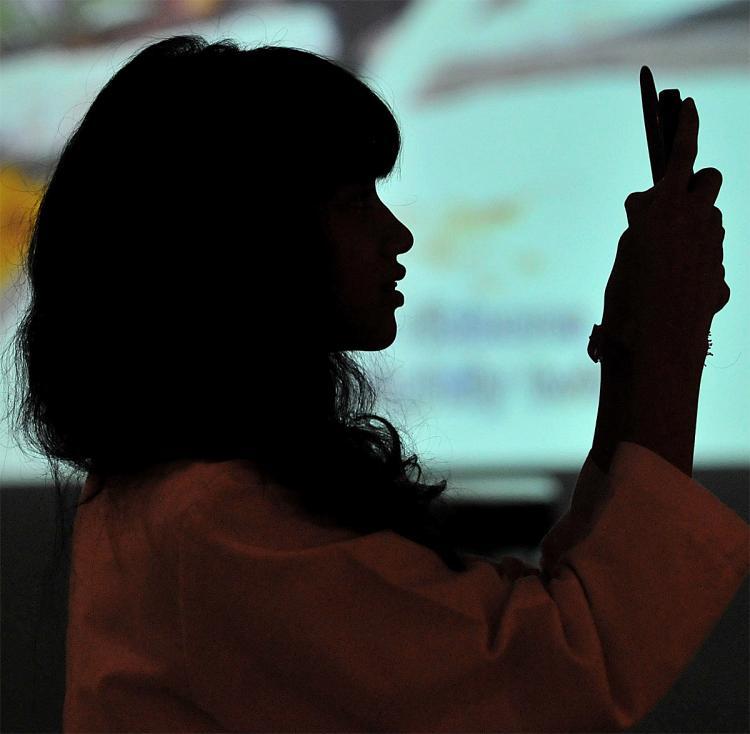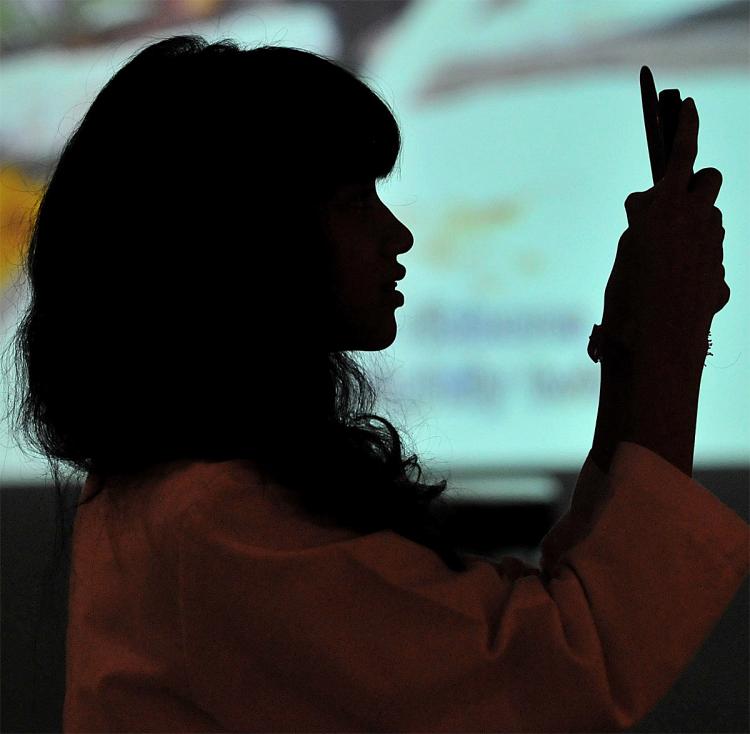Technology promises more connection than ever before, yet one in seven college students say that social networking sites—such as Facebook, Myspace, and Twitter—actually increases feelings of isolation.
The results come from a recent study conducted by mtvU (MTV’s 24-hour college network), the Jed Foundation, and the Associated Press. It was part of the group’s “Half of Us” campaign examining the mental health of college students, and their relationship with technology.
Social networking has clearly become a significant part of life for college students. The study said 90 percent of students reported visiting a social networking site in the last week, while nearly 40 percent claim to have more than 500 friends on such sites.
Technology not only allows students to make plans and coordinate schedules, but also share feelings and ideas—friends are the top resource college students turn to when they need help. Twenty percent of students have friends who have talked about wanting to end their lives in the past year, and nearly 1 in 10 report having thought about it themselves.
About 40 percent of students report that they are likely to ask for help with a serious personal issue or let a friend know they are upset with them via text message.
While this technology allows for greater communication, however, it may also lead to less actual human contact. The study found that while nearly 70 percent of students report reading posts from a close friend that seemed like a cry for emotional help, fewer than half would make a personal visit to see the distressed friend.
While e-mails, text messages, and social networking posts help college students communicate with one another, without the visual cues of actual human contact these digital relationships can carry misunderstandings and cause confusion. Students report that at least half the time they are uncertain whether the sender is joking or serious.
Students report that digital communication offers a great deal of convenience, but say it also adds a new dimension of social pressure. At least half the time, 85 percent of students say they feel compelled to immediately answer a new message on their cell phone. Nearly 60 percent of students report that unless a person immediately responds to a text they have sent, they spend time analyzing the meaning behind the non-response.
This technology-borne obsession can also manifest in other ways too, as over 60 percent of students say they have found themselves frequently tracking someone’s social networking profile.
One-third of respondents reported being online for more than six hours a day, and 90 percent of college students said they visited a social networking site in the past week. Almost half of students send upwards of 50 text messages daily, and one-fourth send more than 100.
Seventy percent of respondents report having had an argument exclusively via text message, despite a clear majority of students admitting that solving a conflict face-to-face is a much better choice.
While many students reported that completely abstaining from technology would make life more stressful, twice as many said it would have a calming effect.
The results come from a recent study conducted by mtvU (MTV’s 24-hour college network), the Jed Foundation, and the Associated Press. It was part of the group’s “Half of Us” campaign examining the mental health of college students, and their relationship with technology.
Social networking has clearly become a significant part of life for college students. The study said 90 percent of students reported visiting a social networking site in the last week, while nearly 40 percent claim to have more than 500 friends on such sites.
Technology not only allows students to make plans and coordinate schedules, but also share feelings and ideas—friends are the top resource college students turn to when they need help. Twenty percent of students have friends who have talked about wanting to end their lives in the past year, and nearly 1 in 10 report having thought about it themselves.
About 40 percent of students report that they are likely to ask for help with a serious personal issue or let a friend know they are upset with them via text message.
While this technology allows for greater communication, however, it may also lead to less actual human contact. The study found that while nearly 70 percent of students report reading posts from a close friend that seemed like a cry for emotional help, fewer than half would make a personal visit to see the distressed friend.
While e-mails, text messages, and social networking posts help college students communicate with one another, without the visual cues of actual human contact these digital relationships can carry misunderstandings and cause confusion. Students report that at least half the time they are uncertain whether the sender is joking or serious.
Students report that digital communication offers a great deal of convenience, but say it also adds a new dimension of social pressure. At least half the time, 85 percent of students say they feel compelled to immediately answer a new message on their cell phone. Nearly 60 percent of students report that unless a person immediately responds to a text they have sent, they spend time analyzing the meaning behind the non-response.
This technology-borne obsession can also manifest in other ways too, as over 60 percent of students say they have found themselves frequently tracking someone’s social networking profile.
One-third of respondents reported being online for more than six hours a day, and 90 percent of college students said they visited a social networking site in the past week. Almost half of students send upwards of 50 text messages daily, and one-fourth send more than 100.
Seventy percent of respondents report having had an argument exclusively via text message, despite a clear majority of students admitting that solving a conflict face-to-face is a much better choice.
While many students reported that completely abstaining from technology would make life more stressful, twice as many said it would have a calming effect.







